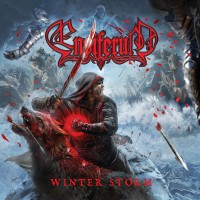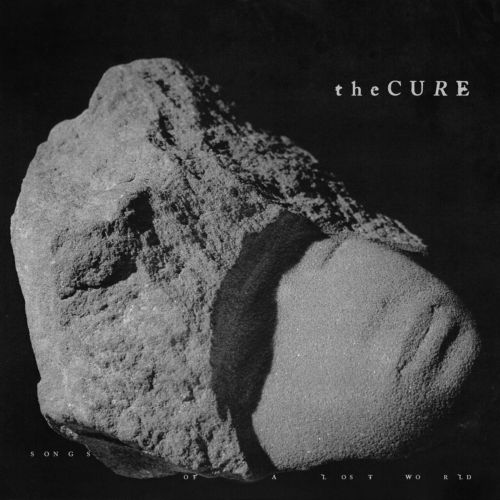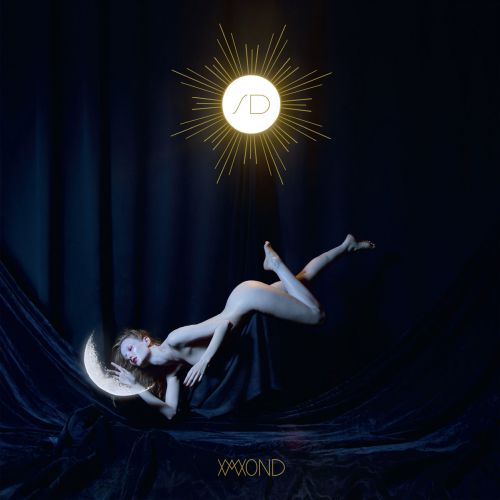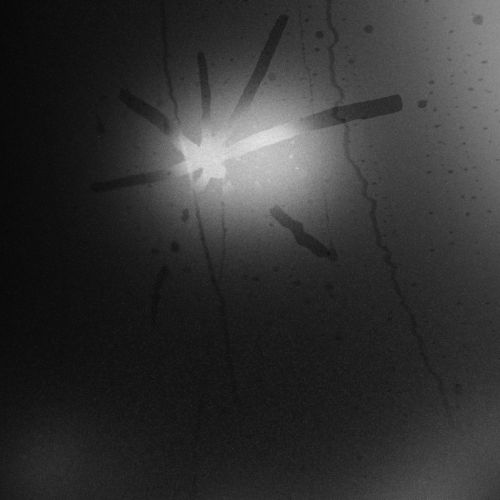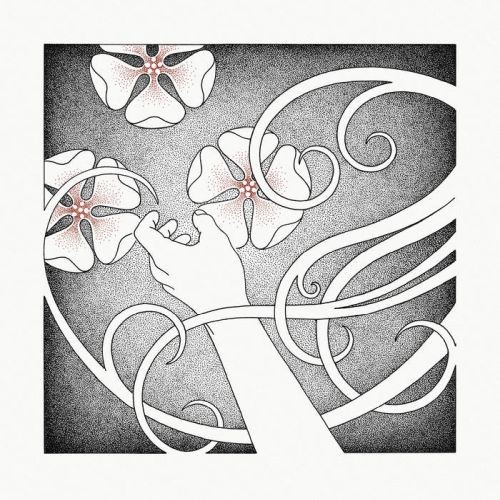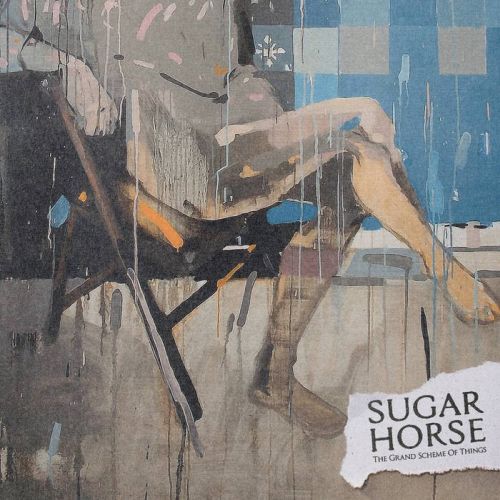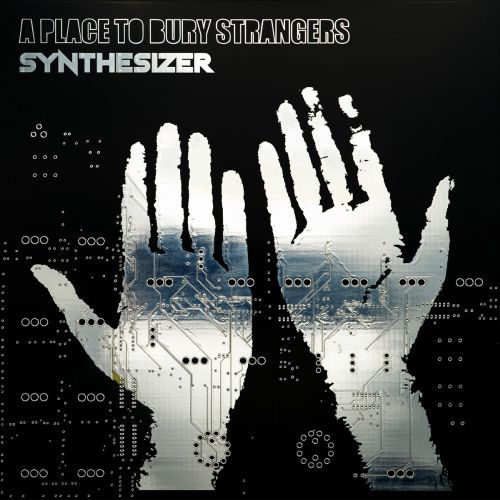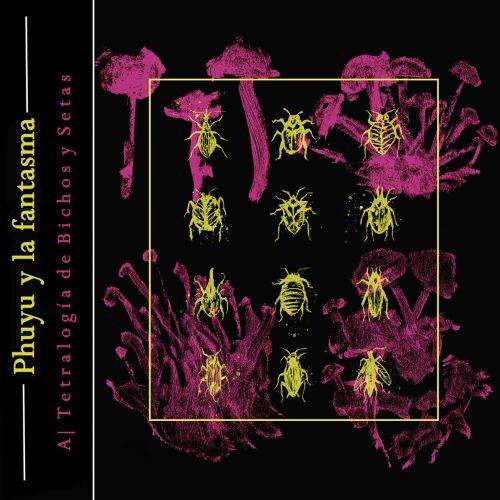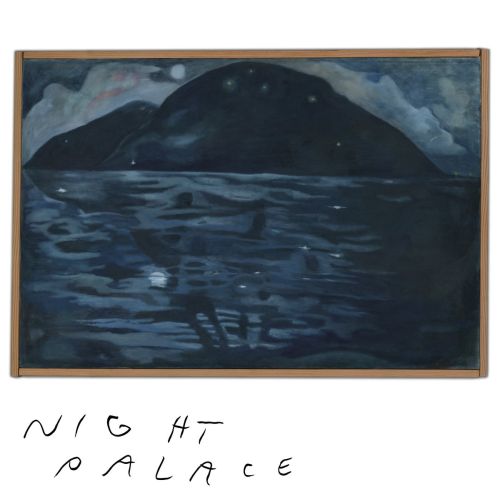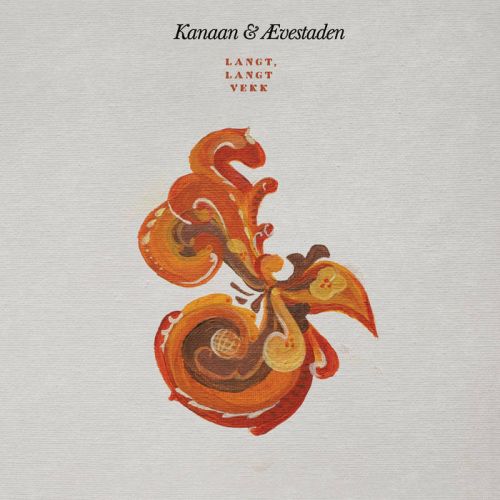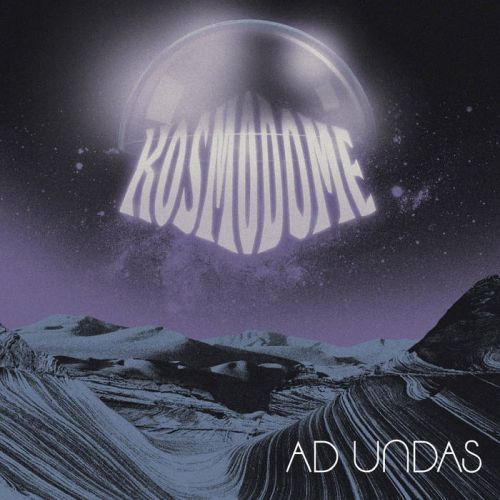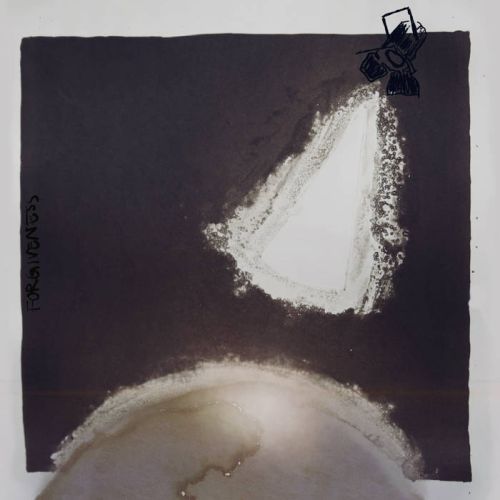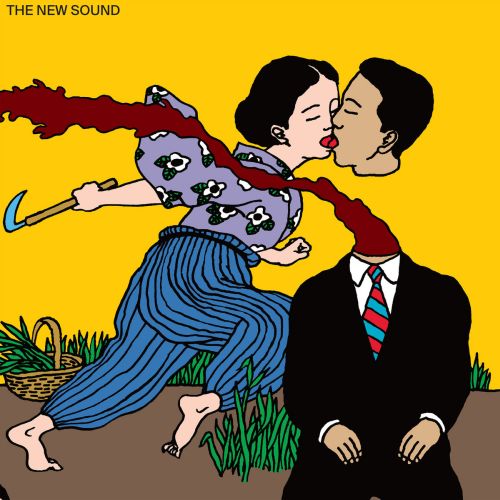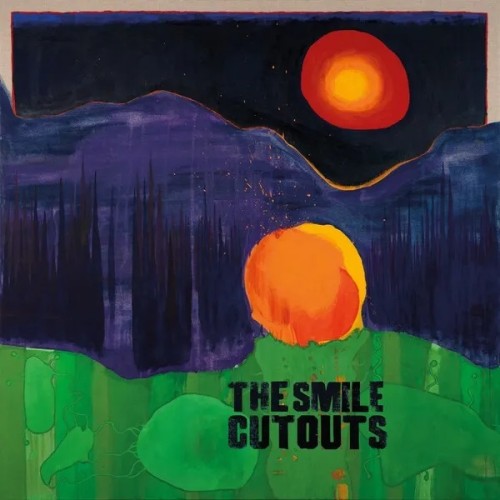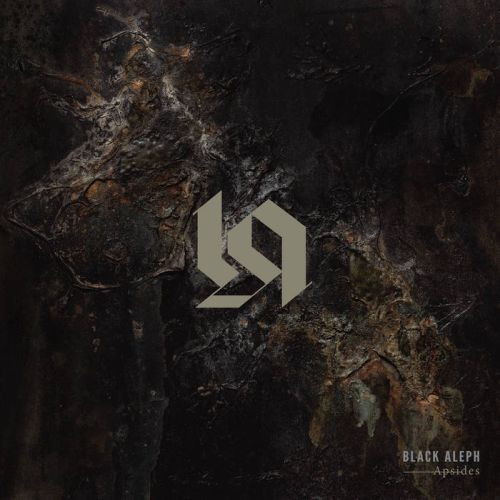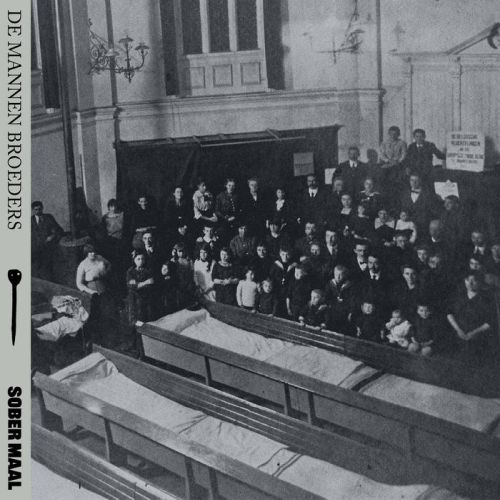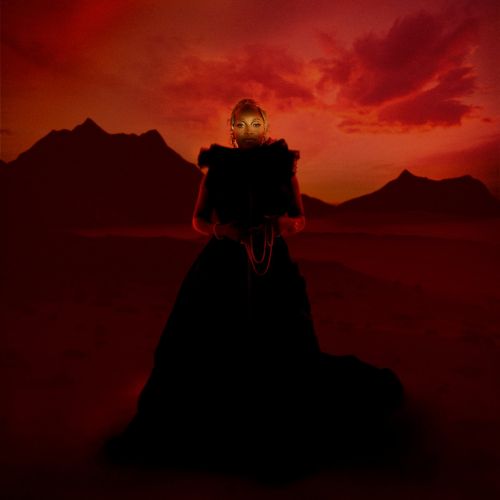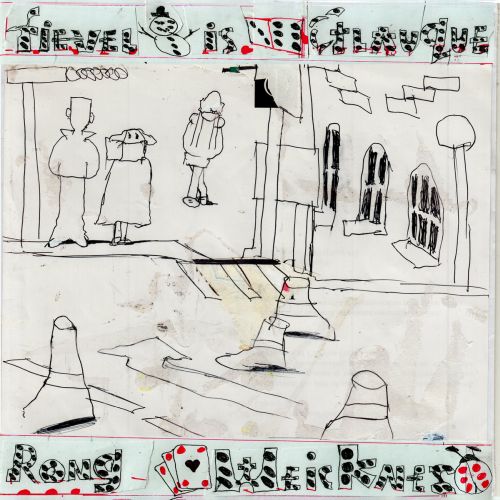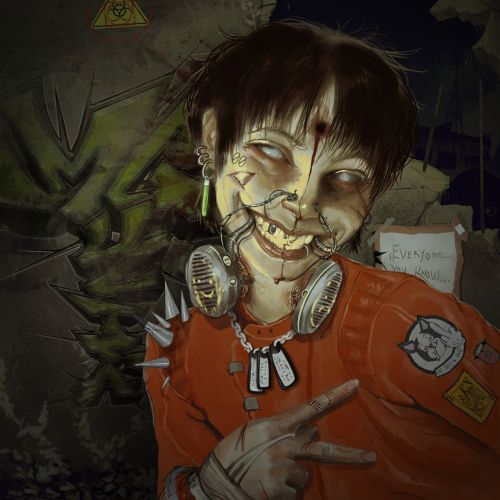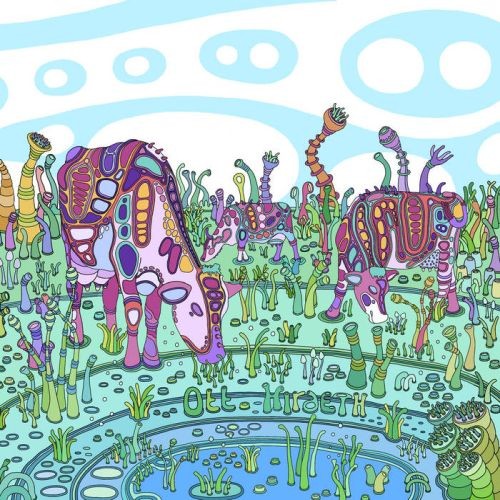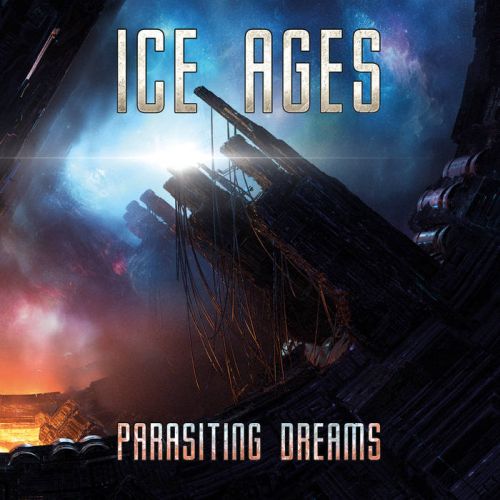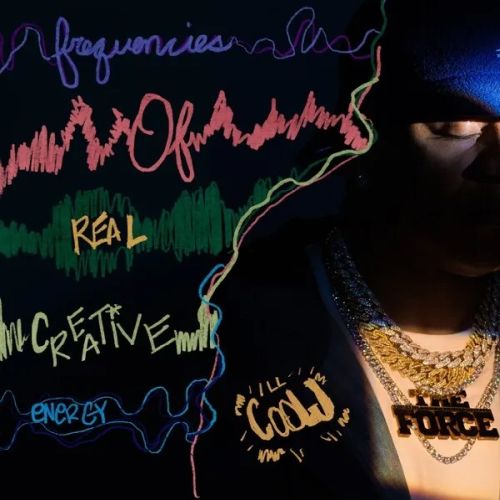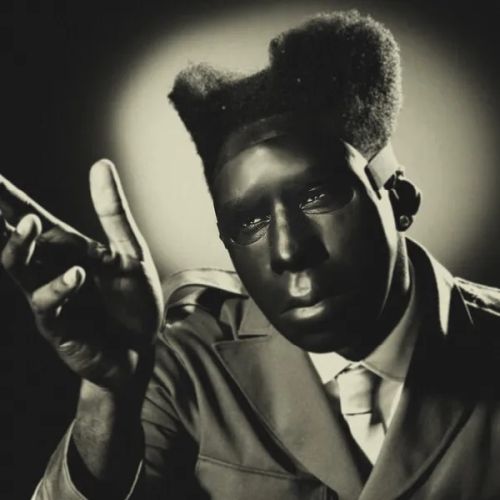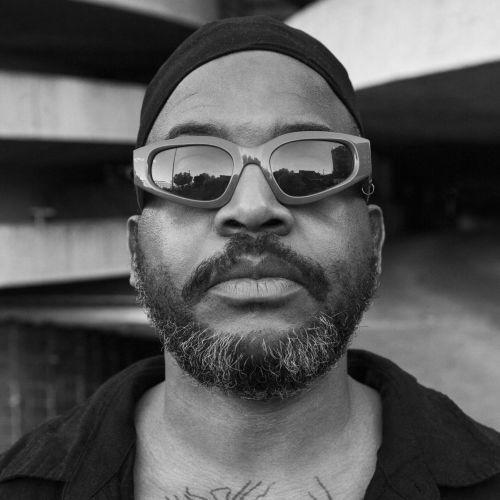Wait A Minute! This Isn't Metal! - October 2024

| Written by: | RaduP, musclassia, X-Ray Rod, nikarg, Roman Doez |
| Published: | November 18, 2024 |
Wait A Minute! This Isn't Metal! - October 2024
Metal Storm's outlet for nonmetal album reviews
The place where we'll talk about music without growls or blast beats
unless they still have those but still aren't metal
unless they still have those but still aren't metal
We here at Metal Storm pride ourselves on our thousands of metal reviews and interviews and article; metal is our collective soul and passion, which is why we bother with this junk. That being said, we'd be lying if we stuck to our trve-kvlt guns and claimed that metal is the only thing we ever listen to. Whether we want to admit it or not, we do check out some other stuff from time to time; some of us are more poptimistic than others, but there's a whole world out there aside from Satan-worshiping black metal and dragon-slaying power metal. We do already feature some nonmetal artists on our website and have a few reviews to back them up, but we prefer to limit that aspect of the site to those artists who have been a strong influence on the metal scene or who are in some way connected to it. This article series is the place for those artists who don't matter to metal in the slightest but still warrant some conversation - after all, good music, is good music, and we all know metal isn't the only thing on this planet for any of us.
Down below, you might find some obscure Bandcamp bedroom projects or some Billboard-topping superstar; as long as it ain't metal and the album itself isn't a best-of compilation, it fits. Obviously, we're certain that not everything will be for everybody (you guys can be viciously territorial even when metal is the only thing on the menu, and we're all supposed to like the same things), but we do hope you find at least one thing that you can enjoy, instead of just pointing and screaming in horror "Not metal!" as if that would be an insult.
Here are our previous features:
September 2024
August 2024
July 2024
And now to the music...
Disclaimer: The Cure, along with Judas Priest, is my favourite band of all time, and Disintegration is the best album ever.
Songs Of A Lost World is the first studio album in 16 years of the greatest goth rock/post-punk/new wave band that ever existed. It comes after the -underappreciated, mainly due to its horrible production- 4:13 Dream, and right from the brilliant cover, a 1975 sculpture by Slovenian artist Janez Pirnat, titled Bagatelle, there is a clear distance taken from its predecessor. Robert Smith wrote the entire album himself, and this is probably one of the reasons why it sounds so personal, vulnerable, and cohesive. The band has already performed a few of these new songs during the last five years, with warm reception, and Smith has revealed that there are two more albums that will be released before The Cure’s ending, which will happen in 2029, when he reaches the age of 70.
Songs Of A Lost World is gloomy and downbeat, dealing with mortality, love, solitude, loss, grief, and other Cure-familiar subjects. Robert Smith’s lyrics have always been touching and relatable, and this is one of these times that he has found the exact words to match the music. The way the beginning and the end of the album are connected with the lyrics “This is the end of every song we sing… Alone” on “Alone”, and “Left alone with nothing at the end of every song” on “Endsong” is just so beautiful and dark. “I Can Never Say Goodbye” is heart-wrenching, dealing with the loss of Smith’s brother, and the same applies to “And Nothing Lasts Forever”, which is about Robert promising to someone that he would be with them in the end, and he regretfully wasn’t. But The Cure is not just about lyrics; the unmistakable melancholic melodies are the band’s trademark, and they are here in abundance. Sound-wise, the keyboards and the bass are prominent, the electric guitars are razor sharp whenever they appear, the drums often have that cold and industrial feel of the ‘80s, and the production is raw; Songs Of A Lost World is not a polished record by any means (just listen to “Warsong”; it is just vicious). Robert’s voice is ageless, and his songwriting here very much reminds of albums like Disintegration and Bloodflowers, with the lightless and brooding tracks taking up most of the runtime. The only fairly upbeat song is the “Never Enough”-y “Drone:Nodrone”, followed by the Wish-sounding “A Fragile Thing”. Songs Of A Lost World is not Disintegration (how could it be?), but it is emotionally charged and compositionally inspired to a point that is found only in The Cure’s classic albums. Robert Smith has put his bare soul on this, resulting in something greater than any fan could hope for; an undeniable career highlight.
Bandcamp | Apple Music | Spotify
by nikarg
Prepare yourselves, creatures of the night! Soror Dolorosa is back and your cravings for the most luscious, dark, seductive mix of post-punk, new wave and goth rock will surely meet their necessities. It is easy to look back and enjoy the music of the old masters like Sisters Of Mercy, Fields Of Nephilim, Heroes Del Silencio and The Cure. What is not easy is to find modern bands that actually try to sound modern. So one of the first things that impressed me about Soror Dolorosa’s fourth full length, Mond, was the impeccable production that really gives their music a futuristic, slick look. Mixing and mastering was done by Perturbator mastermind, James Kent, which explains a lot when you think about it since he is the right kind of person to balance the old and the new when it comes to electronic music.
But what about the band and the music itself, eh? Well, the performance is just fantastic on all fronts. Despite the synth-heavy instrumentation, one can feel a heaviness in Mond’s sound. It isn’t surprising that they are featured in a prominent metal label like Prophecy record and that drummer Andy Julia has previously worked on many black metal bands over the years. We got some really passionate vocals, catchy-as-rabies beats and guitar melodies and a warm, thumping tone on the bass. Some of the guitars are so dreamy that the music turns slightly psychedelic like on the fantastic ending of “Red Love” and “Hurlevent”. Mond has been my first contact with Soror Dolorosa (although the artwork from No More Heroes looks super familiar to me). I think this is an excellent place to start for newcomers not only for the band itself but also for this delightfully dark style of music as a whole.
Bandcamp | Apple Music | Spotify
by X-Ray Rod
Even with all of our efforts at including screamo and post-hardcore, especially seminal acts but also newcomers, into our database, the truth is that most of the acts, heavy as they are, are not featured and might continue to stay so. Touché Amoré are one such act, even if their debut 2009's …To the Beat of a Dead Horse is pretty much screamo to the core, the band went on to include more melodic sensibilities, whether more emo or more post-hardcore enough to toy the line between heavy and heavy in a metal way. Regardless, that did lead to some of the best modern hardcore, especially the highly conceptual Stage Four from 2016.
Spiral In A Straight Line continues the trend of Touché Amoré diversifying their sound that they set course on with 2020's Lament, and the most obvious attempt are the indie rock leanings that also come in the form of guest spots from Lou Barlow and Julien Baker. These leanings do work pretty well alongside the more direct screamo/post-hardcore bits, and a lot of the heavy lifting is done by vocalist Jeremy Bolm's impassioned performance. Though not as narratively conceptual as Stage Four was, the themes of spiraling and mental health and overthinking do make Spiral In A Straight Line a hugely emotionally resonant record.
Bandcamp | Apple Music | Spotify
by RaduP
musclassia's pick
While At The Sound Of The Heart is a debut album, there is some remarkable pedigree behind Whispering Void; initially conceived by guitarist Ronny Stavestrand, he recruited (former?) Trelldom bandmate Gaahl on vocals, who brought his own past collaborator Lindy-Fay Hella (Wardruna) as a contrasting vocalist. With the line-up rounded out by Iver Sandøy (Enslaved and many others) on drums, Whispering Void have quite a lot of metal heritage between them, but while there are brief moments during which that unearths (most notably in the heavy ending of “We Are Here”), At The Sound Of The Heart is not a metal album.
Instead, and perhaps unsurprisingly considering the current and past projects of many of its participating members, this album incorporates a lot of Nordic folk, as well as other folk/world music influences (see the psychedelic vibes of opening track “Vinden Vier”), albeit with something of a folk rock focus. Additionally, At The Sound Of The Heart draws in several places from the world of post-rock and progressive rock; see, for example, the increasingly heavy evolution of that aforementioned opening song, or the bright dynamic swells during “Vi Finnes”. To some degree, the end result of the album reminds me of Mamiffer, but the execution is arguably more accomplished and compelling. Coming not long after the release Trelldom’s emphatic comeback album ...By The Shadows..., this is turning out to be a fruitful autumn for Gaahl.
Bandcamp | Spotify
by musclassia
Sugar Horse are a band that could, and arguably should, be in our database; while rarely committing fully to metal, their hard-to-pinpoint style does incorporate some serious heaviness, and has resulted in collaborations and tours with the likes of LLNN, Pupil Slicer and Conjurer. New album The Grand Scheme Of Things continues to straddle the line between various styles of rock and forays towards metal, but the band openly declare an intention this time around to make an album that is noticeably ‘less metal’, and instead embrace more fully genres such as post-rock, shoegaze, indie rock and space rock.
The opening title track makes this intent clear early on, with shimmering, spacious soundscapes, anthemic group clean vocals and reverberating drums. Subsequent songs in a similar vein include “The Shape Of ASMR To Come” and “Corpsing”, both of which build to very voluminous climaxes. The first explosion of aggression on the album comes in the sludgy second half of “Mulletproof”, while the likes of “Spit Beach”, “New Dead Elvis” and “Office Job Simulator” have snippets respectively of sludge, post-hardcore and noise rock, but each of them has their own moments of tranquillity or serenity. The boldest move from Sugar Horse, however, is to close the album with a 25-minute odyssey titled “Space Tourist”, which shifts from melodic indie rock to gnarly sludge before committing the final 20 minutes of its runtime to euphoric ambience. While I like Sugar Horse, have admitted found them in the past to be not so much a genre-crossing chameleon act and more a band struggling to find their true identity, and that somewhat remains the case on The Grand Scheme Of Things, but there’s some impressive moments along the way in spite of that.
Bandcamp | Apple Music | Spotify
by musclassia
So this summer I went to a huge metal festival that included performances from names like Opeth, The Dillinger Escape Plan, Converge, Amenra, Anaal Nathrakh, and God Is An Astronaut. Can you guess which was my overall favorite performance of the festival? If you guessed that I wouldn't mention this in A Place To Bury Strangers' writeup if it wasn't A Place To Bury Strangers that was my favorite you'd be correct. I was already a fan of them beforehand, and I knew how they would sound like, but it was how that sound translated to the live setting and how the band broke the stage boundary by going to perform half the concert in the crowd really did it for me.
The studio version of that sound is less directly impactful, there's something about the noisy and psychedelic sound that just asks for you to be present. That doesn't mean that listening to an A Place To Bury Strangers isn't worthwhile, but their really really noisy sound can be quite a jarring experience. The other side of the band's side is a more gothic and cold kind of post-punk, and that coldwave leaning is even stronger this time around. As the name suggests, synths have a larger share of the sound, and also references a specific synthesizer that was made specifically for this band and that's used on the record.
Bandcamp | Apple Music | Spotify
by RaduP
Oh boy. I might be the wrong Chilean to review this album but we have no one else at Metalstorm HQ so I’ll do my best. I’ve covered several Chilean bands in these non-metal article series. But this is the first time I get to review a project which takes references from Cueca, which is Chile’s national style of music and dances. Cueca got its official status declared in 1979 during the Pinochet fascist dictatorship. So this music genre, despite having deep roots in Chilean culture, does have some dark connotations. Which is precisely why it is so fascinating to hear how Phuyu Y La Fantasma completely disembowels the genre and forcefully presses it through a noise rock filter filled with either confrontational, left-wing lyrics filled with dark social commentary or emotive, pastoral poems which pay a beautiful homage to Chilean culture.
I realise this album gets most of its flavour if one is Chilean (or knows Spanish). If you are an outsider who is purely excited for the prospect of new, crazy music then I’m happy to tell you this album is also for you. Because there is some mental work going on here. The alien atmosphere, caused by the insane genre-blending never feels so bizarre that you can't appreciate the intricate songwriting and abilities of the musicians involved. The melodies and hooks of the guitar are ever so slick with crazy mood-changes that drift from dreamy to nightmarish at the drop of a hat. I think fans of Mamaleek or perhaps Diablo Swing Orchestra would really get a kick out of this violent yet charming mess of an album. The first half of the album is the most noisy, experimental, and my personal favourite as I think they are cooking some really vile stuff with these aggressive, jazzy passages with dissonant riffs.
Another interesting point is the vocals. The way they seamlessly change between jovial clean singing and desperate screams reminds me of the fantastic Maudlin Of The Well, which is nicely captured in the second half of the track “Te Privatizaron”. The later half of the album puts more weight on the Cueca elements with more acoustic guitars and has a much lighter approach (although the song “La Berenice” is super intense with its schizophrenic songwriting and anguished screams at the end).
Reviewing avantgarde rock of this sort is not an easy task. One tries, often in vain, to compare the music to other weirdos one has heard before. While my attempt has been somewhat successful, I still think it is very difficult to fully dissect the weirdness of Phuyu y La Fantasma unless you hear it by yourself. The fact that this is the first part of a double album (more on that in our next issue!) makes this an even more enticing work.
Bandcamp | Apple Music | Spotify
by X-Ray Rod
For a really long time, it felt like so much of Phil Elverum's musical output was directly tied to the trauma of losing his partner and the mother of his child, especially and very directly in 2017's A Crow Looked At Me, a record that was so barebones and steeped in autobiographical trauma processing that it was felt more therapeutic than musical, with subsequent releases continuing that processing but in a more musically developed fashion. The last we heard from Phil, he had briefly revived his The Microphones project for Microphones In 2020, a record that also felt autobiographical but focused on a different part of Phil's life. Four years later, we have the largest Mount Eerie record to date.
Night Palace is a pretty huge collection of tracks, and even though there is one towering 12 minutes track in it, the bulk of the runtime is made up of either normal length songs or shorter vignette-like songs. The lo-fi production approach along with the disjointed flow is quite reminiscent of Phil's earlier work, and he continues to use that approach quite charmingly. There are cuts that are more barebones folky, some that use more developed indie rock instrumentation, some that have an almost post-rock quality to them, and some whose noisiness (including a very noisy one where his daughter is playfully screaming along) gets an almost metallic quality to it. While it's still a very emotional and melancholic album, it's nice to get to see a side of Phil that can afford to be more humorous and quirky and playful again.
Bandcamp | Apple Music | Spotify
by RaduP
The ever-prolific Kanaan (averaging more than one new album every year since their 2018 debut) return to this article series for the first time since May 2023, and this time they’re not alone, as Langt, Langt Vekk is a collaboration with the similarly prolific neofolk outfit Ævestaden. This joining of forces raises the question of where the common ground between fuzzy psychedelic rock and acoustic folk lies; the answer is one that the album takes a bit of time to feel out.
To begin with, one could be concerned that Langt, Langt Vekk would just flitter between the two extremes; opening track “Ganglåt Bortåt” is acoustic folk through and through, a serenade of violins and acoustic guitar, while “Habbor Og Signe” initially sounds like a reversion towards Kanaanian fuzz. However, as folk vocal harmonies and violin string plucks are incorporated, it turns into a very intriguing mesh of folk and psych rock alongside the hectic drumming and shredding guitar soloing. This psychedelic folk mesh is explored in curious new ways on subsequent songs; “Fiskaren” is built upon a bed of eerie drones fleshed out by rapid-fire hi-hat rolls, bursts of distorted texture and creepy string utterances, while “Dalebu Jonsson” builds from a neofolk vocal-heavy first half to a frantic, shredding climax. Certain tracks gravitate far more heavily towards either Kanaan (“Vallåt Efter C.G. Färje”) or Ævestaden (“Farvel”), but overall Langt, Langt Vekk is a well-balanced and captivating collaboration.
Bandcamp | Apple Music | Spotify
by musclassia
Both Kosmodome’s logo and the artwork to their albums look all the world as if they belong to a stoner rock band, but the group actually belongs instead to Norway’s increasingly burgeoning progressive rock scene. Coming nearly 3 years after their self-titled debut, Ad Undas is unabashed in its retro nostalgia for the 60s and 70s, from the airy instrumental tone and production to the ever-fluid, complex songwriting; however, there is also a willingness to go more modern and throw in heavier riffs that makes those first impressions not completely misplaced.
Opening track “Neophobia” is probably the most unapologetically retro prog song on the album, with a generally light touch to the instrumentation and a sprawling feel to its meandering structure. Having said that, it throws into some heavier psychedelic riffing in its closing stages, which sets the stage for fuzzier rocking in parts of “Dystopia” and “Turmoil”. That being said, this is by no means a stoner rock album; the moments of heaviness are outweighed by the gentle, contemplative passages, and in between there’s a solid middle ground established that embraces trippy psychedelia and rhythmic complexity. There’s also a satisfying melodicism to a lot of the album that works well in tandem with its more progressive sensibilities.
Bandcamp | Apple Music | Spotify
by musclassia
SLIM0 are a genre-hopping and nation-crossing trio with Danish, Iranian and Montenegrin roots, who have just released their debut album Forgiveness. Despite featuring a whopping 17 tracks, the album is just shy of 40 minutes in length; with only 3 tracks longer than 3 minutes, there’s a lot of concise writing going on here, which facilitates concise exploration of varying musical influences. ‘Art rock’ is a nicely vague umbrella term to capture the grunge, drone, noise and other rock influences encountered across the record, which is frequently unpredictable.
The punk/noise rock opener “Stars! I’m Coming” is both upbeat and straightforward in a way that the album generally isn’t; “Fear The World Alone” comes right after and exhibits SLIM0’s weird side, lurching around with odd distortion, eerie repeating sounds and distant, harrowing howls, while “Trenches” puts its 6 minutes to good use to encompass SubRosa-esque doom, cacophonic percussion outbursts, angelic choral harmonies and abrasive distortion. The remaining tracklist ranges from fast and light (“Di0r”) or languid (“Makaroni”) to weird and noisy (“Same Scene”).
Bandcamp | Apple Music | Spotify
by musclassia
RaduP's pick
One of the biggest bummers one could get as a music critic and fan is seeing promising bands calling it quits right when they were on an upward trajectory towards becoming established acts. It happened with Sprain pretty recently. It then happened to Black Midi this year. It was then surprising to see that vocalist/guitarist Geordie Greep would come out with his own solo record right afterwards, one that seems to have been under wraps before the band's eventual demise. Regardless, what Geordie does here is not exactly a continuation of Black Midi's sound, though the migrating fans would feel very rewarded.
Progressive rock, especially of the more avant kind is a common thread in between what Geordie did in Black Midi and what he does on The New Sound, but as the title implies, the new sound here is more inspired by jazz and art rock, being more inspired by the fusion sounds of the 70s, but in a more avant-garde modern direction. There's some really great flow in how these tracks keep their momentum, especially considering that track lengths range from two to twelve minutes, and considering the plethora of studio musicians involved in this. From how extravagant and dramatic the vocal performance is to how elegant the jazz art rock sounds, The New Sound is a pretty colossal success in transitioning towards a solo career for someone that was already in one of the most promising bands out there.
Bandcamp | Apple Music | Spotify
by RaduP
I've gotten way to used to having three or four years in between albums, to the point that when Wall Of Eyes came out two years after A Light for Attracting Attention it felt a bit sudden. After all, the four to five years became the norm for Radiohead, the original band of two thirds of The Smile. So having another The Smile album in the same year as Wall Of Eyes felt even more sudden. I had to check whether time has passed so quickly that Wall Of Eyes was already last year. In a way that's a Kid A/Amnesiac situation where the two albums go together but one still kinda feels like B-sides from another.
That doesn't mean that Cutouts is not without its own merits, after all Amnesiac was also a fantastic album, and this kind of prolific release schedule for musicians that have been around for three decades at this point in their career must mean that something got the creative juices flowing and the end result is one that strides the line between more lively material that often relies on the interesting drum patterns of drummer Tom Skinner and moodier cuts that use both dramatic strings and an ambient psychedelia to achieve their mood. I don't find it as strong of a collection of songs as Wall Of Eyes, but there's still plenty of vital ideas on display.
Apple Music | Spotify
by RaduP
musclassia's pick
Between the later-career works of Om and acts such as Wyatt E., heavy drone bands have found Middle Eastern music to be a resourceful influence. A new name following this example is Black Aleph, an Australian experimental music trio. Produced and mastered by sound engineer with prior experience working with the likes of Earth, Sunn O))) and We Lost The Sea, Black Aleph make their appreciation for metal music clear, but Apsides is a record that is metallic more in spirit rather than timbre.
The trio build a core sound around guitar, cello and daf, and it’s a combination that works very well together, especially on tracks such as “Descent” where ethereal guest vocals from Jessika Kenney add in a faint windswept texture atop the droning guitars and stirring cello. The two bands mentioned at the start of this review both veer towards very lengthy compositions; tracks like “Ambit II (Aphelion)” and “Occultation” are more concise, but while they’re also lighter than what Wyatt E. summon up at their most thunderous, they do scratch a similar itch, particularly when Lachlan Dale starts shredding like on the latter song. There are different sonic flavours across the album, however, with “Precession” both leaning more towards post-rock with its tremolos and also hunching out the sound in passages to something more metallic than anything else across the album. There’s also a surprising degree of melancholia to “Return” that serves as a fitting prelude to the emphatic percussive march of closing song “Occultation”.
Bandcamp | Apple Music | Spotify
by muslassia
Probably best known to metal fans for her involvement in bands such as Vastum and Hammers Of Misfortune, Leila Abdul-Rauf has a longstanding solo career outside of these bands, dating back to 2013’s Cold And Cloud. She is joined on latest album Calls From A Seething Edge by several guests, including Tomb Mold/Dream Unending guitarist Derrick Vella as well as former Saros bandmate Sam Foster on percussion, but despite this collective experience in performing loud, heavy music, Calls From A Seething Edge is an exercise in quietness (and only occasionally heaviness).
At its foundations, this album contains ambient music, with each song structured around drones and noise. Some such tones are ominous, such as “Summon” and “Crimes Of The Soul”; others, as in “Mukhalafat”, are much lighter. Accompanying these ambient layers are a range of instruments and approaches, such as the folk instrumentation heard during the aforementioned “Mukhalafat”. Folk is an occasional but not persistent presence during the album, such as when adding sad melody to “Depths Of Us”; other tracks, such as “Summon”, go in a more eerie horror direction, or add in a touch of the industrial, in the case of “Crimes Of The Soul”. Despite a relative sparseness to it, Calls From A Seething Edge manages to incorporate quite a lot tonally and musically, and as a result defies expectations for such a minimalist approach.
Bandcamp | Apple Music | Spotify
by musclassia
Despite the capacity for overwhelming heaviness that Amenra possess, they are arguably as noteworthy for their extensive exploration of quietness, and frontman Colin H. Van Eeckhout has gone much further in this direction with his releases under the CHVE moniker. De Mannen Broeders offers a further vehicle for such pursuits from CHVE, as he collaborates with folk singer Tonnie Dieleman. Debut album Sober Maal, fittingly recorded in an 18th century church with organist Pin van de Werken and a five-person choir, comes ahead of a planned performance from the pair at next year’s Roadburn festival.
De Mannen Broeders is a collaboration forged in shared heritage, dialect and grief, and Sober Maal is bleak and spiritual. On top of vocals, the pair bring banjo, mandolin (both Dieleman) and hurdy-gurdy (CHVE) into the album’s sonics, and the folk touches from these instruments accentuate the grandeur of the album’s dronier tracks, such as “Alle Roem Is Uitgesloten”. Sober Maal isn’t one-dimensional, however, and “Verteere Heel” features a more folk-oriented sound with banjo and four-to-the-floor bass drum hits, accompanied by evocative singing from CHVE, while “Onze Lieve Vrouwe” goes all-in on the chamber choir, sounding positively elegiac in combination with the organ and hurdy-gurdy.
Bandcamp | Apple Music | Spotify
by musclassia
The last time I checked on English singer / songwriter Laura Marling, she had just released her 2020 album, Song for Our Daughter, which was written about an imaginary daughter. As fate would have it, Laura has since actually became a mother, following the birth of her daughter last year. Having two albums about motherhood, but one grounded in fantasy and one in reality, does make for a pretty neat collection, and also leaves some room for comparisons between the two. But that's probably more of a job for a literary professional analyzing themes, for my worth, how that translates into the music is pretty fantastic.
Patterns In Repeat is a pretty straight-forward folk album, where the most important aspect of it is the lyricism, and the instrumental palette is mostly focused on having the voice in the center stage, often having an acoustic guitar as its only accompaniment. There's more to it than that instrumentally, with some strings touches here and there, and a proper chamber interlude in "Time Passages". The production makes all of it feel warm and intimate, which is only so fitting for such a motherly album. That's a vibe that one can easily appreciate even without diving into the lyrics and parsing the musings on life and what our offspring get to inherit from us.
Bandcamp | | Spotify
by RaduP
RaduP's pick
I know I don't cover a lot of jazz, but I figured that something I do appreciate about certain jazz albums is the sense of scope. A lot of them going either into spiritual or avant-garde or anything of the sort that exudes a sense of grandeur and self-aggrandizing. Think of albums like Kamasi Washington's The Epic or, closer to home, Neptunian Maximalism's Éons. Even if the album isn't a couple of hours long, and even if that assigned importance feels less "colossal" and more down to earth, there's still something in the confidence that an album like Nubya Garcia's full length debut, Source, had back in 2020, and that's something that is even more obvious in an album with a title like Odyssey.
Though the album's runtime is almost ten minutes shorter than its predecessor, Odyssey feels more ambitious and with a larger scope. The brand of spiritual jazz still retains a lot of the funkier and soulful leanings of Odyssey, especially in some of the moments where there's a guest involved, but there's more of it that feels more orchestral and progressive in nature. Garcia's saxophone playing is on full display, even with the larger scope it still feels like it captures most of the attention and that it drives the whole thing, moving through moments that feel more dramatic and ones that feel more playful with the same ease.
Bandcamp | Apple Music | Spotify
by RaduP
RaduP's pick
There's a special kind of pride when, as a journalist / reviewer, you've covered a band since the beginning. Me and others get that a lot with stuff from our Clandestine Cuts feature, and though this non-metal feature gets less attention site-wise, both as a series and for its individual entries, it still feels pretty nice seeing that a band whose debut you covered years ago is still going and getting underground attention. Granted, 2021's God's Trashmen Sent to Right the Mess is not that long ago, and Fievel Is Glauque is still far from a household name in the music field, but seeing the name pop up more often thanks to the release of Rong Weicknes does make me happy for the band.
The duo have since relocated from Belgium to New York, and I can't shake the feeling that this is a less lo-fi offering than its predecessors, though that's far from a downside. There's still a very strong improvisational and personal quality to it, even if Fievel Is Glauque expand their scope by inviting more musicians into their studio for Rong Weicknes, and somehow that didn't compromise the intimacy of the band's sound. Their songs are still so playful and quirky and dreamlike, in that pop meets jazz way that they make so charming, but with a larger arsenal at hand, they make the most of the larger toolset they acquired.
Bandcamp | Apple Music | Spotify
by RaduP
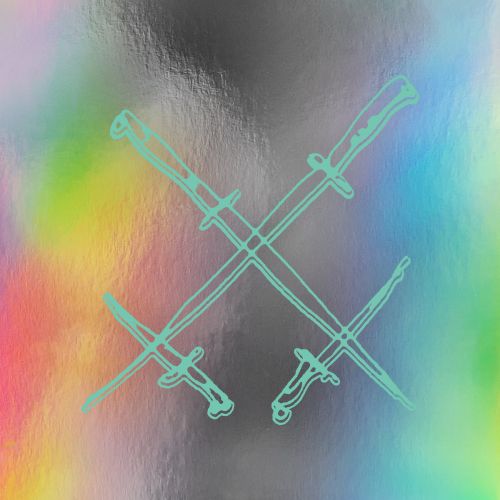
Xiu Xiu - 13" Frank Beltrame Italian Stiletto With Bison Horn Grips
[Experimental Rock | Neo-Psychedelia]
There are very few experimental bands that have gained the notoriety and critical acclaim that Xiu Xiu have, both for their more approachable work and for their more down the deep end experimental work. Few bands can have pop, rock, noise, folk, industrial, and electronica as tags attached to their music, regardless of what specific subgenres of those appear on the album, so you never quite know which side of Xiu Xiu you're gonna get, but you know it will never be "easy music". The last time we caught up with them, they had just released Ignore Grief an eerie death industrial offering that also introduced percussionist David Kendrick, who worked since the late 70s with bands like Sparks and Devo, as a full-on member of the band.
Being the second album in this formula (although there is a larger roster of session musicians on the side), you might expect something in a similar direction, but 13" Frank Beltrame Italian Stiletto With Bison Horn Grips (and that's the last time I'm typing this) takes things in a more straight-forward rock direction, at least as straight-forward as a band fronted by a vocalist like James Stewart can be, but a very psychedelic nature seems to be this nature's focus, one that exists alongside some pretty driving drum patterns and one where there's some proper riffing that turn this into something more accessible for people arriving at Xiu Xiu from a rock direction.
Bandcamp | Apple Music | Spotify
by RaduP
Over the years, Machine Girl have carved themselves a niche in the electronic music scene, evolving from the hardcore breaks of their 2014 debut WLFGRL to the more aggressive digital hardcore of 2017’s ...Because I'm Young Arrogant and Hate Everything You Stand For, which has been their main stylistic direction ever since. Now with a few more albums under their belt, they are back to deliver more of their sonic aggression on MG Ultra.
On first listen, MG Ultra may feel like a rehash of Machine Girl’s signature style. It leans heavily into digital hardcore but is never quite as aggressive as BIYAHEYSF or The Ugly Art. Hints of the hardcore breaks from their debut keep coming back but never fully take over. In a way, this is slightly disappointing if you come in expecting their usual in-your-face aggressive sound. On the other hand, this lends to a more experimental approach, often blending their influences together. Take for example the club anthem “Grindhouse”, or the hyperpop influenced “Motherfather” and its guitar section that almost tricked me into thinking I was listening to the Pixies. This wider range of sounds also comes with a more refined production, which further contrasts with the rawer and aggressive sound of their previous releases, and instead cements MG Ultra as its own thing.
This slightly tamer sound works well enough here and delivers some true bangers like “Psychic Attack”, but their usual uber-aggressive style is what draws me in, and I hope they embrace it fully next time around.
Bandcamp | Apple Music | Spotify
by doez
musclassia's pick
After Ott fans had to wait seven years between the releases of Fairchildren and Heads, it’s been a more tolerable gap between the latter record and new album Hiraeth. Ott is one of the leading names in psychedelic dub, with a lot of reverence from fans towards albums such as Mir and Skylon. Hiraeth has been referred to as a bit of a return to roots for the producer, with an even more chilled, dub-oriented sound to the album compared with its predecessor; as someone who, as mentioned a few times in these articles, was introduced to this kind of music through Globular & Geoglyph’s Messages From The Resonator, a lot of what can be heard on Hiraeth perfectly scratches the same itch.
The first couple of tracks, “A Door In The Back Of The Wardrobe” and “Muggy Boneheads”, perfectly set the tone for the record, with lush, mellow mixes of vibrant and eclectic sounds carried along by languid dub beats; the latter also features fun trumpet contributions from Balkan Bump, one of many credited musicians guesting on the album. The album shifts into another gear soon after, however, with the mesmerizing groove and glitchy vocals of “Camping ’76!”. There’s a few different flavours across the album (“Raketwetenschap” pushes the intensity a bit with some of the blasting synths in its latter stages, “The Eternal Mrs R” is rather ambient and ethereal), but the album is fairly quintessential for the style, and is all the better for it, as it’s a really alluring listen.
Bandcamp | Apple Music | Spotify
by musclassia
I Ya Toyah is the stage name of Chicago’s Ania Tarnowska, who returns with her second album Drama, six years after debut Code Blue, and with a litany of EPs, singles and remixes spanning the gap between them. After recent tours with Orgy and Stabbing Westward (the latter of whom’s Walter Flakus produced and mixed Drama), her new record occupies a similar musical niche to output from both of those acts. Drama is most easily categorizable as industrial rock or electronic rock, containing immediate songs with extensive electronic soundscaping shaped by band arrangements and guitar distortion that, while not quite crossing over into metal, has enough heaviness to appeal to mainstream metal crowds.
In spite of that partial heaviness, Drama’s songwriting has a clear view towards catchiness and accessibility, with I Ya Toyah delivering big, hooky choruses with pop/alt rock sensibilities (see a track such as “Panic Room”). The album is also not beholden to one set style or formula, as “Dream Not To Dream” eschews the rock instrumentation and goes all-in on infectious synthpop with big danceable beats, while “Drama” leans more towards darkwave/synthwave with its subdued electronic backdrops. Tarnowska’s keen ear for memorable and effective hooks, along with the power and personality of her vocals, ensures that her songwriting consistently delivers dividends across the different genres she broaches within and between songs.
Bandcamp | Apple Music | Spotify
by musclassia
Richard Lederer has been releasing music under the Ice Ages name almost as long as he has with Summoning (where fans may know him better as Protector). Given the heavy synth presence in Summoning’s music, it probably wouldn’t be surprising to fans of that band unacquainted with Ice Ages to discover that it is also a synth/electronic-oriented project, although it seemingly eschews fantasy in favour of dystopian sci-fi settings.
At 70 minute in length, Parasiting Dreams is a sizeable body of work, particularly coming but a year after the similarly lengthy Coma. A lot of the album feels like it’s building towards something due to the ominous, steady beats, which are accompanied by bouncy, flickering electronics and effects-laden vocals. While some relatively heaviness is eventually brought into the equation with a low churn on songs such as “Buried Alive”, the lack of escalation does mean that there’s a bit of a lack of direction when considering the album’s length. “Blessed In Descent” does eventually inject some impetus into the album with bright synth motifs and livelier beats, and it is better for it. Nevertheless, after listening to Parasiting Dreams, it’s hard not to think that Lederer is approaching Ice Ages with a bit too much of a ‘quantity over quality’ mindset at present.
Bandcamp | Apple Music | Spotify
by musclassia
In Waves? Where have I heard that one before?
Jokes aside, Jamie XX is a name I haven't heard in a long time. I was never the biggest The XX fan during their heyday, but there was a time where it felt like they were one of the biggest names in rock (or at least rock-adjacent music), so I was pretty bummed out to figure out that they haven't really been a thing since 2018. I did get to see both Jamie XX and Romy live since, though neither live nor in the studio do they return to anything rock-adjacent, preferring more EDM/Pop territories. I'm quite alright with that, especially since Jamie's previous album, 2015's In Color was something that was pretty formative for rockist younger me to actually get into EDM.
Well, perhaps my groaning about The XX no longer being a thing are momentarily alleviated by the fact that all three members appear on one of the tracks of this record, though they're not the most impressive guests on the roster, with the likes of The Avalanches, Robyn, and Panda Bear all turning this one into some house music that's both moody and incredibly catchy and danceable. There's plenty of really cool repeated soul samples, some stripped back grooves, all working to make In Waves feel more straight-forwardly house-y and funky compared to how bassy and deep In Color was comparatively.
Bandcamp | Apple Music | Spotify
by RaduP
I never expected that I'd ever feel compelled an LL Cool J album, not only because his previous album was more than a decade ago, but because he's a rapper that has been at it since the mid 80s, with a heyday that ended in the early 90s, and what I've heard from the albums since has been forgettable at worst. History is full of bands and artists that had it and lost it, sometimes they keep releasing inconsequential releases, sometimes they stop altogether. So seeing that there was a new album by this name that I only associated with the early history of hip-hop and that it was getting buzz, I had to figure out why.
I think there's two big reasons why. One and the most obvious one is that A Tribe Called Quest's Q-Tip is handling production, and the way that he handles beats on this thing is by taking a bit more from jazz and soul, but also not in a way that's too straight-forward, instead making them sound quite unconventional. The second reason is that features from the likes of Busta Rhymes, Nas, and Rick Ross gel well with the sound and with LL to place The Force in between the underground and the mainstream, with a sound that feels old and detached from the zeitgeist, but also not exactly throwing back to anything that LL did before.
Apple Music | Spotify
by RaduP
It probably says something about me that this was the one Tyler, The Creator record that made me go "there's a new one already" even if he's consistently put a new one every other year since his debut in 2009 with Bastard, as ages away as that one feels, and Chromakopia actually marks the first time there's been a three years gap in between records. Part of it might be that the last record, Call Me If You Get Lost, got a profoundly extensive re-release with a bunch of bonus tracks called The Estate Sale, last year, and that kinda felt like an album in its own. Regardless, with how this album's cover especially presents it, I expected a more conceptual Tyler this time around, so I'm surprised to see that the lyricism here feels more genuine and straight-forward than anything involving any character play.
Sonically it feels most similar to Flower Boy, in that it takes a lot of the more melodic soul / R&B aspects of it while still mostly operating within a hip-hop framework, more hip-hop than Igor, more soul than Call Me If You Get Lost. I'm not super enamored with the guest spots on this record, which might not lead to tracks I actively dislike, but places a pretty big difference between the tracks I do like and the ones I don't. The production which blends the more soulful bits with more unusual noisy drill sounds seems quite commonplace for Tyler already, so while I appreciate the musings on fame and his place in the world, I don't feel like the record stands out enough in Tyler's catalog, though perhaps it's just the case of it needing to grow on me.
Apple Music | Spotify
by RaduP
There's a balance to be kept when covering multiple releases of an artist (or collective) you've grown to appreciate. In this case I've already covered a lot of releases by Elucid's duo Armand Hammer, and by his partner in that duo Billy Woods. Elucid comparatively, while being incredibly prolific and setting a "one album every other year" schedule since 2016 seems to not get as much attention as the other two aforementioned, which seemed to change with the release of 2022's I Told Bessie, also the first of his that I got to cover. Having already written so much about the Armand Hammer-verse, I do feel compelled to continue that tradition even if that leads me to question how much that is just inertia.
I'll admit that a lot of this abstract hip-hop field that is pretty much my favorite hip-hop lane can eventually turn quite stale if using the same tactics, so I was pleasantly surprised by Revelator doing a bit more to switch things up. A lot of it is still quite what one expects from that lane, with psychedelic beats and a more formless flow, but there's a stronger display of experimental approaches in the beats, whether some noisier industrial leanings, some sampling that borders on the sound collage, some touches of dub/illbient, though all of that lies on top of the same sound that both Elucid and Billy Woods have already been doing so well (as Billy does feature on a couple of the tracks on Revelator, and they continue to do so.
Bandcamp | Apple Music | Spotify
by RaduP
Hits total: 86 | This month: 86

